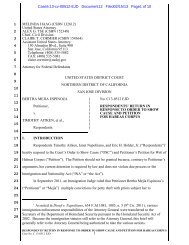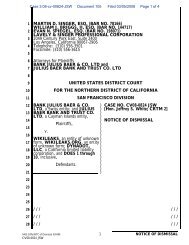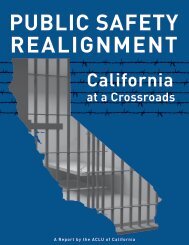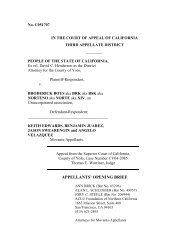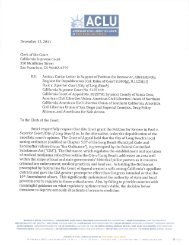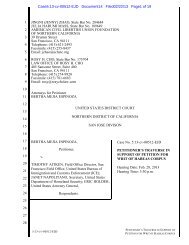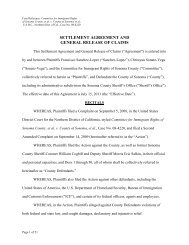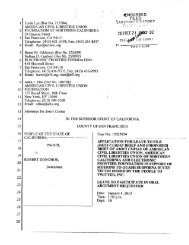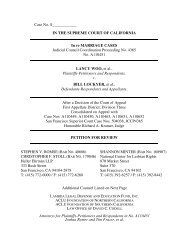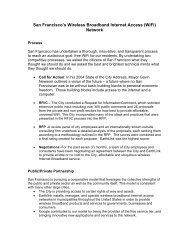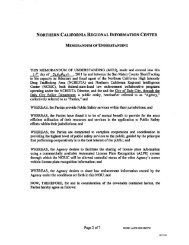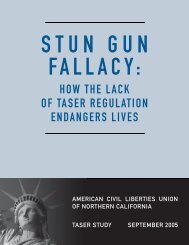1 of 2 - ACLU of Northern California
1 of 2 - ACLU of Northern California
1 of 2 - ACLU of Northern California
Create successful ePaper yourself
Turn your PDF publications into a flip-book with our unique Google optimized e-Paper software.
Case M:06-cv-01791-VRW Document 254 Filed 04/20/2007 Page 31 <strong>of</strong> 3212345678910111213141516171819202122232425262728wholly apart from the "very subject matter" issue, the Court must enter summary judgmentagainst the Plaintiffs since the evidence needed to adjudicate the merits is unavailable. SeeKasza, 133 F.3d at 1 t76 (affirming entry <strong>of</strong> summary judgment for the United States on statesecrets privilege grounds); Zuckerbraun, 935 F.2d at 547 (where effect <strong>of</strong> state secrets privilegeassertion is to prevent plaintiff from establishing a primafacie case, summary judgment underRule 56 is appropriate on the ground that either the plaintiff, who bears the burden <strong>of</strong> pro<strong>of</strong>,lacks sufficient evidence to carry that burden, or that the exclusion <strong>of</strong> evidence precludes thedefendant from establishing a valid defense).(U) Again, with respect, the Hepting decision erred both substantively and procedurallyin failing to assess the consequences <strong>of</strong> the Government’s privilege assertion there. Thesubstantive flaw was the Court’s conclusion that the "very subject matter"<strong>of</strong>Hepting was not astate secret because it read public disclosures by the Government and AT&T to" indicate thatAT&T is assisting the government to issue some kind <strong>of</strong> surveillance program." Hepting, 439 F.Supp. 2d at 994. But that conclusion improperly focuses on "whether the general subject matter<strong>of</strong> the case can be described without resort to state secrets," not on the correct inquiry <strong>of</strong>"whether an action can be litigated without threatening the disclosure <strong>of</strong> such state secrets." El-Masri, 2007 WL 625130, at * 8 (first emphasis added). Even if it was proper to infer from public;tatements whether AT&T assisted the NSA with some kind <strong>of</strong> surveillance program, the Court;till had to decide whether the actual claims in that case, which challenge specific allegedtctivities, could be litigated to conclusion without disclosing the privileged information andcausing the harms to national security identified by the DNI.~3143 F.R.D. at 599 (same); Clift v. United States, 808 F. Supp. at 108.~3 (U) The Court’s decision to defer assessing the impact <strong>of</strong> the state secrets privilege until afterdiscovery was especially inappropriate where the discovery cited by the Court concerned thevery subject matter <strong>of</strong> the case as to which the Goverrmaent asserted privilege--whether thePublic Memorandum <strong>of</strong> the United Statesin Support <strong>of</strong> Motion to Dismiss or for SummaryJudgment, MDL No. 06-1791-VRW -23-



